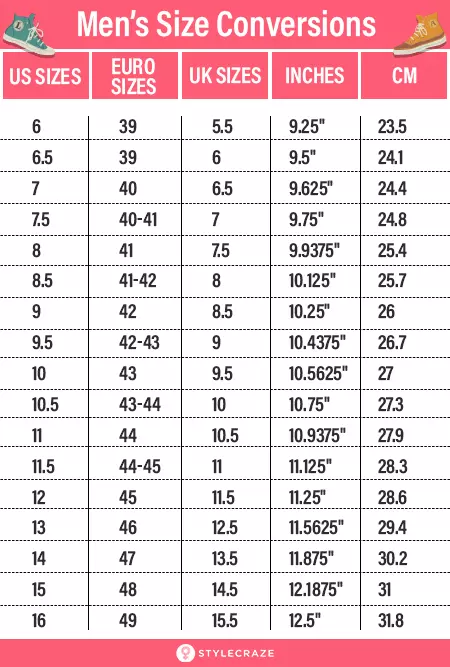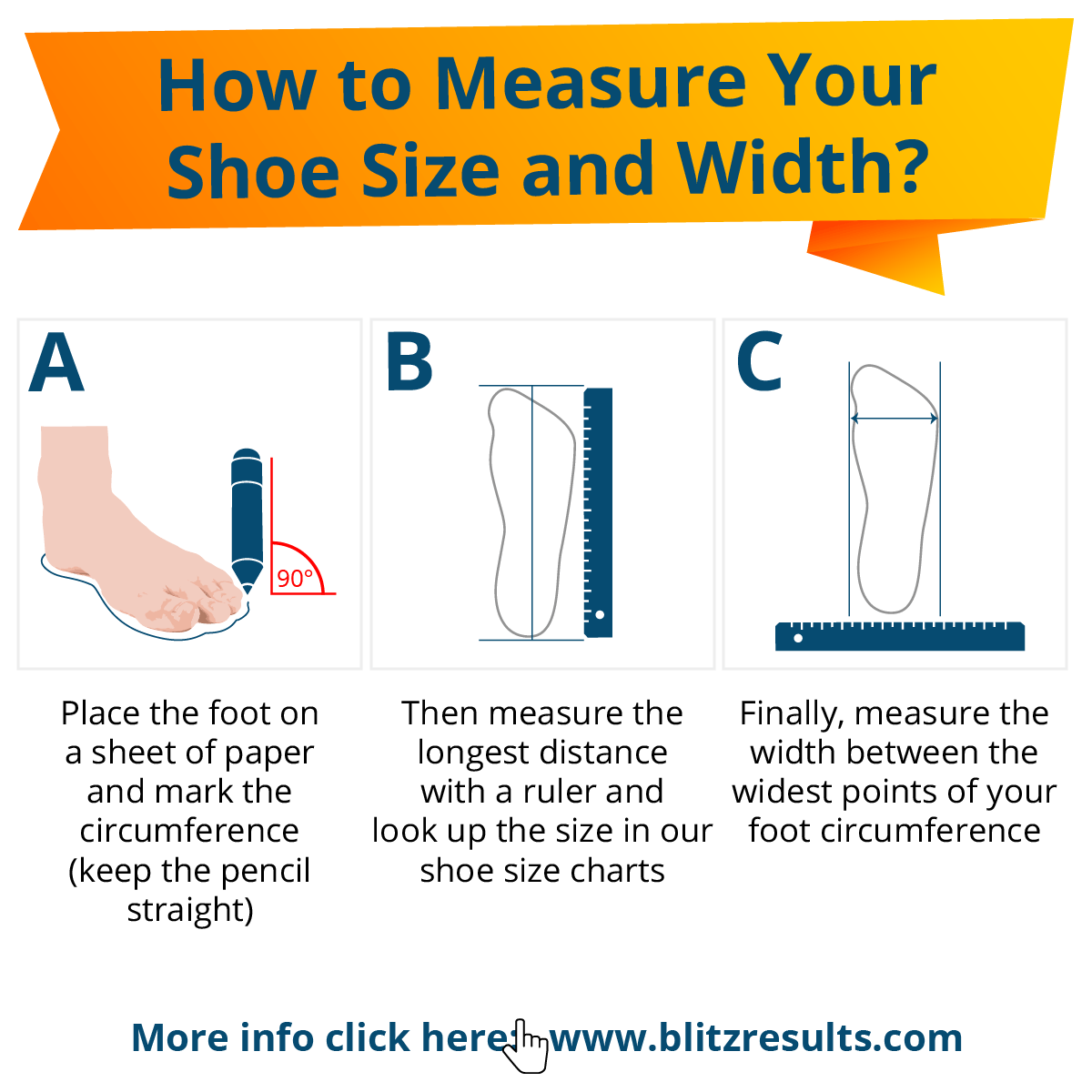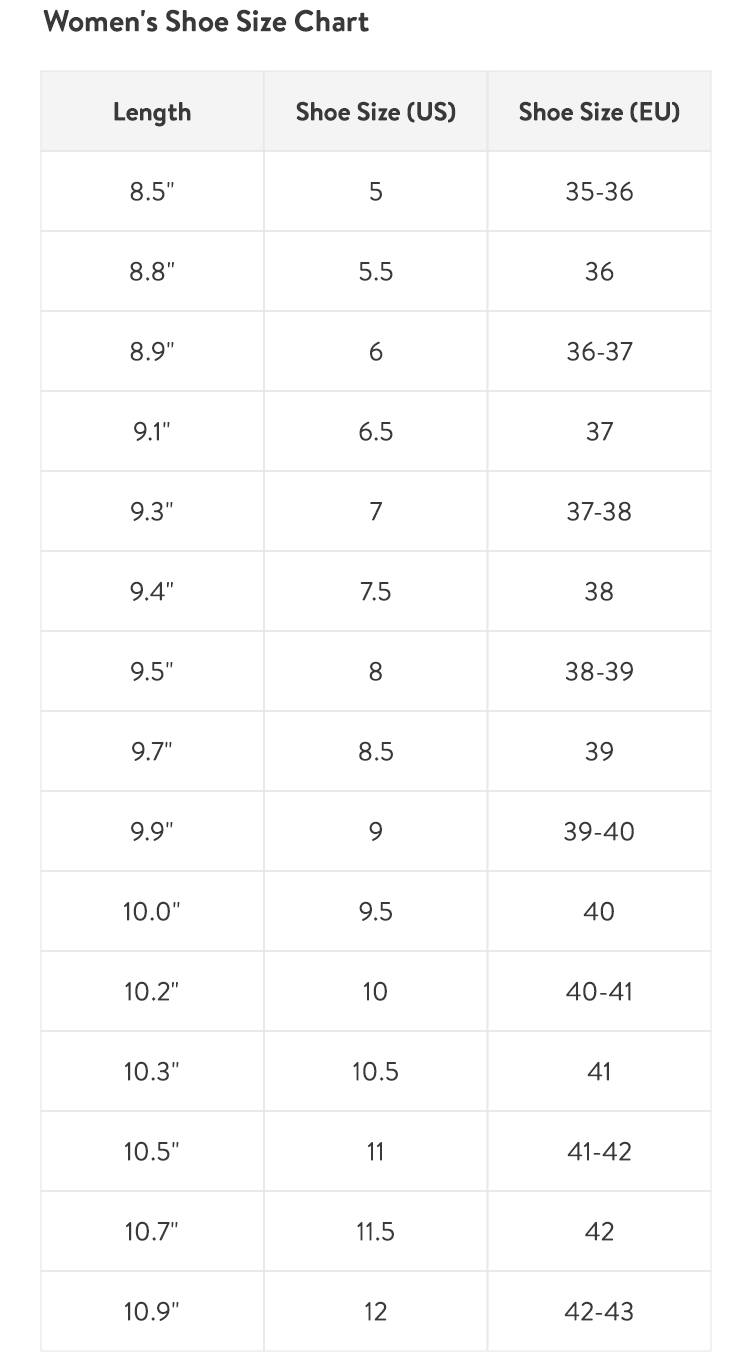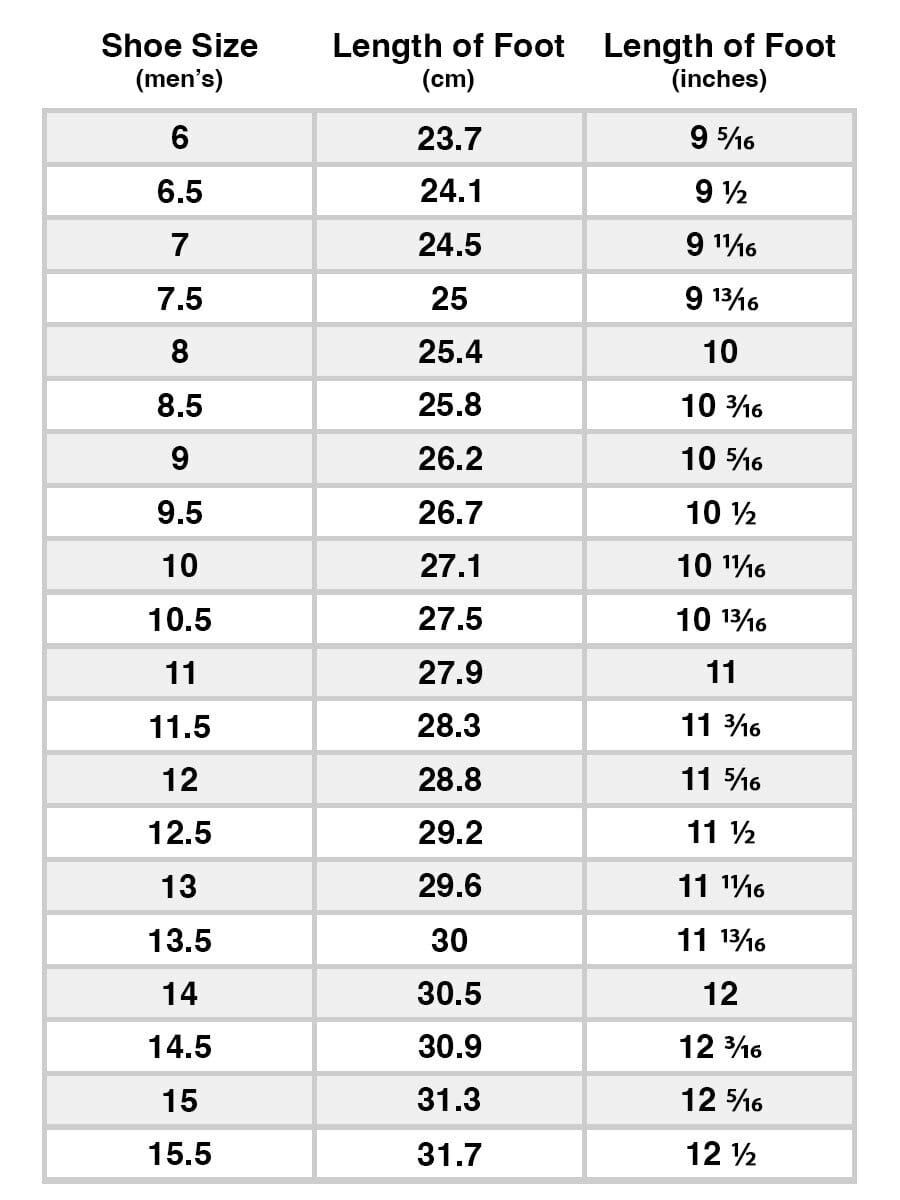Calculating shoe size is simple with the right steps. Knowing your size ensures comfort and fit.
Finding the perfect shoe size is crucial for comfort. Many people wear shoes that don’t fit well, causing pain or foot problems. Measuring your feet correctly is the first step. In this guide, we will show you how to measure your feet at home.
It’s easy and requires only a few tools. By the end, you’ll know your correct shoe size and enjoy better-fitting shoes. Let’s get started!
Introduction To Shoe Size Calculation
Understanding shoe size calculation is essential. Wearing the correct shoe size prevents discomfort and foot problems. Incorrect sizing can lead to blisters, calluses, and even long-term issues. Many people struggle with finding the right fit. This guide will help you measure your feet and understand shoe sizes better.
Importance Of Correct Shoe Size
Wearing the right shoe size is very important. It ensures comfort and supports foot health. Shoes that are too tight can cause pain. Loose shoes can lead to slips and falls. Properly fitting shoes also enhance performance in sports and daily activities. Your feet will thank you.
Common Shoe Size Systems
There are several shoe size systems around the world. The most common ones are US, UK, and European sizes. Each system measures differently. US sizes are typically larger than UK sizes. European sizes use a different scale altogether. Knowing these systems helps you find the right fit.
Convert sizes when shopping internationally. This ensures you get the correct shoe size. Always check the sizing chart provided by the brand. Different brands may have slight variations. This simple step can save you from buying the wrong size.
Materials Needed
Calculating your shoe size at home can be simple. You just need the right materials. This guide will help you gather everything you need. Let’s get started with the essentials.
Tools For Measurement
Having the right tools will make the process accurate and easy. Here’s what you’ll need:
- Ruler or Tape Measure: To measure the length and width of your foot.
- Paper: A piece large enough to fit your entire foot.
- Pencil: To trace the outline of your foot.
- Chair: Sit comfortably while measuring your foot.
- Socks: Wear the type of socks you plan to wear with the shoes.
Choosing The Right Surface
Selecting a suitable surface is crucial for accurate measurements. Follow these tips for the best results:
- Flat and Hard Surface: Ensure the surface is flat and hard. A wooden floor or tiled surface works best.
- Well-Lit Area: Good lighting helps you see the outline clearly.
- Stable Surface: Avoid soft or uneven surfaces. They can cause inaccurate measurements.
Using these materials and tips will help you get the best fit. Happy measuring!
Measuring Your Feet
Getting the right shoe size is crucial for comfort. Measuring your feet at home is easy. You only need a few tools. This guide will help you through the process. Follow the steps below to get an accurate measurement.
Preparing Your Feet
First, gather your materials. You will need a piece of paper, a pencil, and a ruler. Make sure you measure your feet in the evening. Feet swell during the day. You get a more accurate size this way.
Wear the type of socks you will usually wear with the shoes. Place the paper on a hard floor. Avoid carpet as it can affect the measurement. Tape the paper down to keep it from moving.
Tracing Your Foot
Stand on the paper with one foot. Keep your weight evenly distributed. Hold the pencil upright and trace around your foot. Make sure the pencil stays close to your foot.
Repeat the process with your other foot. Feet are often different sizes. Measure both to find the best fit. Mark the longest and widest parts of each foot.
Use the ruler to measure the length and width. Write down the measurements. Compare them to a shoe size chart. This will help you find your correct shoe size.
Calculating Length And Width
Calculating the right shoe size involves measuring both length and width of your foot. This ensures you get a comfortable fit. A well-fitting shoe can prevent many foot problems. Here’s how you can measure the length and width of your foot at home.
Measuring Foot Length
First, place a piece of paper on the floor. Make sure it’s against a wall. Stand on the paper with your heel touching the wall. Then, trace the outline of your foot. Use a ruler to measure from the heel to the longest toe. This gives you the length of your foot in inches or centimeters.
Measuring Foot Width
For the width, place the paper on a hard surface. Stand on the paper with your foot flat. Trace around your foot again. Measure the widest part of your foot using a ruler. This is usually across the ball of your foot. Record this measurement as your foot width.
Understanding Shoe Size Charts
Knowing your shoe size ensures comfort and the right fit. Shoe size charts are essential for this. They help you find the correct size across different brands and regions. Understanding these charts can save you time and prevent returns.
Converting Measurements
Converting your foot measurements to shoe size is simple. Here’s how:
- Measure your foot length in inches or centimeters.
- Use the measurement to find your size in a shoe size chart.
- Remember that sizes may vary between regions and brands.
For example, a foot length of 9.5 inches usually converts to a US size 7.5 for women. Use a conversion chart to get the exact size for men, women, or kids.
Using Standard Size Charts
Standard size charts simplify finding your shoe size. They list sizes for different regions such as US, UK, and EU. Here’s a basic example:
| Foot Length (inches) | US Size (Women) | US Size (Men) | EU Size | UK Size |
|---|---|---|---|---|
| 9 | 6 | 5 | 38 | 5.5 |
| 9.5 | 7.5 | 6.5 | 40 | 7 |
| 10 | 9 | 8 | 42 | 8.5 |
These charts make it easy to find your size across different regions. Always check the brand’s specific chart as sizes can differ slightly.

Credit: www.stylecraze.com
Adjusting For Different Brands
Calculating shoe size is not always straightforward. Different brands can have different sizing standards. This guide helps you adjust for these variations, ensuring you get the right fit every time.
Brand Size Variations
Brands often use different sizing charts. For example, a size 9 in one brand might be a size 8.5 in another. This can make shopping tricky.
Here is a table showing examples of size variations among popular brands:
| Brand | Size 9 Equivalent |
|---|---|
| Nike | 9 |
| Adidas | 8.5 |
| Puma | 9.5 |
Knowing these differences can save you time and hassle. Always check the brand’s sizing chart before buying.
Tips For Online Shopping
Buying shoes online has its challenges. Here are some tips to help:
- Measure your feet: Use a ruler or tape measure to find your foot length.
- Check the size chart: Compare your measurements with the brand’s size chart.
- Read reviews: Customers often mention if the shoes run big or small.
- Order multiple sizes: If unsure, order two sizes and return the one that doesn’t fit.
Following these tips can help you find the perfect fit, even when shopping online.
Special Considerations
Calculating shoe size can sometimes be tricky. Special considerations may affect the process. These factors include children’s shoe sizes, orthopedic needs, and custom fits. Understanding these will help you find the perfect size.
Children’s Shoe Sizes
Children’s feet grow quickly. Measuring them often is important. Use a ruler or shoe sizing tool. Measure their feet while they stand. This gives a more accurate size. Remember to account for growth. Choose shoes with a little extra room. This helps their feet develop properly.
Orthopedic And Custom Sizes
Some people need orthopedic shoes. These provide extra support. They are often custom-made. To get the right size, visit a specialist. They will measure your feet and check your needs. Custom shoes might be necessary for specific foot problems. These shoes can help with comfort and mobility.

Credit: www.blitzresults.com
Common Mistakes To Avoid
Calculating shoe size seems simple, but many make common mistakes. These errors can lead to discomfort and even foot problems. Here are some common mistakes to avoid.
Incorrect Measurement Techniques
Many people measure their feet incorrectly. They often stand up or sit down while measuring, which can lead to wrong results. Feet expand during the day, so measure them in the evening. Use a ruler or a tape measure for accuracy.
Trace your foot on a piece of paper. Ensure the pen is held straight up, not tilted. Measure from the heel to the longest toe. Repeat for the other foot. Sometimes, one foot is larger than the other. Use the larger measurement for your shoe size.
Ignoring Comfort And Fit
Many focus only on the number, ignoring the comfort and fit. Shoes should fit snugly, but not too tight. There should be a thumb’s width of space at the end of the shoe. The ball of your foot should fit comfortably in the widest part of the shoe.
Try walking around in the shoes. Check if they pinch or rub. If they do, they are not the right fit. Always prioritize comfort over the size number.

Credit: www.nordstrom.com
Frequently Asked Questions
How Do I Measure My Shoe Size At Home?
Use a ruler or tape measure. Measure the length and width of your foot. Compare with a size chart.
What Is The Difference Between Us And Uk Shoe Sizes?
US shoe sizes are typically one size larger than UK sizes for men. For women, US sizes are two sizes larger.
Can Shoe Size Vary Between Brands?
Yes, shoe sizes can vary between brands. Always check each brand’s size chart before buying.
Conclusion
Finding the right shoe size is crucial for comfort. Measure your feet accurately. Use a reliable size chart. Check the fit with the socks you plan to wear. Your feet can change over time, so measure regularly. Properly fitting shoes prevent discomfort and injuries.
With these tips, you can confidently choose the right shoe size every time. Enjoy happy and healthy feet.



Leave a Reply